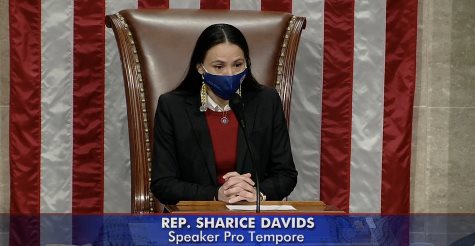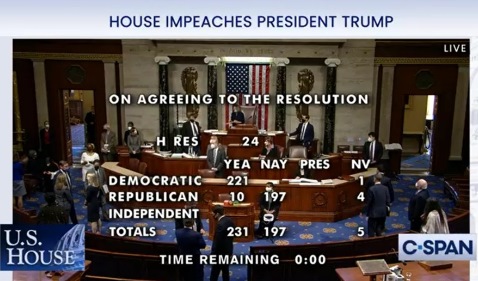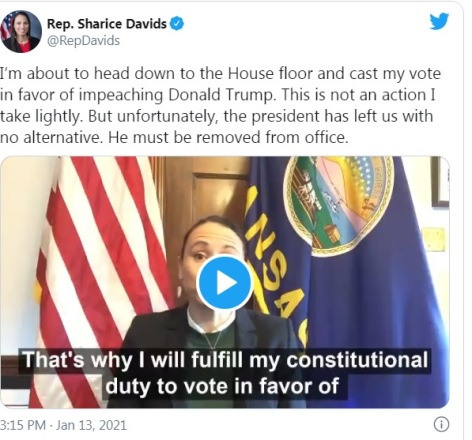Republican budget hawks put an end to the earmarks in Congress a decade ago. Now earmarks are back, and Kansas Republicans in Congress are in a bind: do they take a pass on earmarks and let their districts miss out on money?
by Abigail Censky, KCUR and Kansas News Service
Topeka, Kansas — Eleven years ago, in a navy-and-wood-paneled Topeka TV studio, then U.S. Reps. Jerry Moran and Todd Tiahrt argued ahead of the Republican primary for the U.S. Senate.
Looking directly into the camera, Moran told viewers he backed a moratorium on earmarks, but “Congressman Tiahrt led the effort to keep the earmarks process in place.”
Tiahrt framed it differently.
“Well, when you listen to Congressman Moran, you’d think that I’m the only one in Washington or from Kansas that does earmarks,” Tiahrt said.
But, he said, everyone was using them.
“In fact, just last year,” Tiahrt said, “Moran supported and requested more than $250 million in earmarks.”
Earmarks give Congress a tool to tie money from a spending bill to a specific project without going through all of the hoops of a normal funding request.
They’d become a favorite target for Republicans, glaring examples of the soft corruption of incumbents that wasted money on things like a bridge to nowhere. And when the budget hawks of the Tea Party swept into the U.S. House, earmarks got swept away.
Tiahrt’s seat on the powerful appropriations committee and his desire to reform earmarks, rather than ditch them entirely, put a target on his back. He lost to Moran, who’s since become a senator.
This year, Democrats in Congress brought earmarks back, and they’ve invited Republicans to join in snagging money for special projects in their districts. Some Republicans are cashing in. But earmarks pose a double-edged sword for members of a party that has long stood for less spending and lower taxes. If they don’t play the earmark game, they leave money in Washington that could’ve come back to their districts — and won them votes.
A moratorium
In 2010, before Jerry Moran became a senator, gone were the days of touting the $142,500 he had secured to help pay for the McPherson Opera House, or the earmark requests he’d made to help a community college build a biotech center.
Shortly after the 2010 elections, the earmarks that helped build coalitions, pass big spending bills, and generally greased the wheels of Capitol Hill went away when House Speaker John Boehner banned them.
Giving up earmarks also meant surrendering a way to control some of the Republican Party’s most fiscally conservative firebrands. There weren’t as many incentives like campaign donations or spending money for special projects to bring people to middle ground.
“What else do you have? Well, you could really go nuclear, if someone is a real thorn in your side, and remove them from a committee,” said Laura Blessing, who studied earmarks as a senior fellow at the Georgetown Government Affairs Institute. “It’s just too strong of a tool. That’s a sledgehammer.”
Then-U.S.Rep. Tim Huelskamp felt that hammer’s blow. He’d had a stormy relationship with Boehner. The speaker booted the congressman from western Kansas, and leader of the House Freedom Caucus, off the House Agriculture Committee. And for the first time in 150 years, Kansas no longer had a player sitting at the table when farm policy got hashed out.
When he ran for reelection in 2016, attack ads blasted the Republican for losing that ag seat.
Michael Smith, a political science professor at Emporia State University, said Huelskamp effectively lost re-election when he lost his spot on the committee.
“When Roger Marshall challenged him in the primaries, he didn’t specifically run on earmarks. Earmarks are kind of politically touchy,” Smith said. But “he hammered Huelskamp on the idea (that) he is not the most effective of bringing home resources to this district. And earmarks are a part of that.”
Play or not
Yet when asked about earmarks recently, now-Sen. Marshall told Politico, “I’m gonna do everything I can to blow up the process so that no one does earmarks.”
Rep. Tracey Mann, a Republican from Salina, said in a statement, “I did not run for office so I could be the caretaker in the slow demise of our great nation,” noting he was worried a return to earmarks in the House, “will once again spiral out of control and lead to more government spending.”
U.S. Rep. Ron Estes, a Wichita Republican, agreed. A statement from his office said the earmarks process “detracts from focusing on how to reduce spending.”
Smith said if Republicans continue to pass on earmarks, that’s leaving federal money that could benefit their districts on the table.
“Are they going to bring over that conservative ideology argument, no more big government?” he said. “Or are they going to go back to the more traditional kind of Bob Dole type politics of talking small government, but still making sure that their districts get their fair share of the pie?”
U.S. Rep. Sharice Davids is the lone Kansas Democrat in Congress. She supports earmarks to help revamp a Kansas City highway and buy more electric buses for her district. Davids has requested millions of dollars in earmarks for a myriad of projects ranging from $43 million for a levee and flood wall system in Merriam to an imaging machine at the University of Kansas Cancer Center.
So far, none of the three Republicans who represent Kansas in the U.S. House requested earmarks. The only member of Kansas’ delegation who hasn’t decided yet is Moran.
When Politico polled senators in early May, Moran was one of more than a dozen who were undecided if they would participate in earmarks this year. His office didn’t respond to multiple requests for comment.
Jim Slattery is a former Democratic member of Congress from Topeka. He said he thinks the Kansas delegation should request earmarks. If Congress doesn’t choose where to spend the money, he said, the president will. That cash could end up going to swing states that are more politically useful to the president. Not Kansas.
“Why,” he said, “would they not aggressively pursue the money that is being appropriated to build highways and build infrastructure to improve the internet and broadband capability in Kansas?”
Abigail Censky is the political reporter for the Kansas News Service. You can follow her on Twitter @AbigailCensky or email her at abigailcensky (at) kcur (dot) org.
The Kansas News Service is a collaboration of KCUR, Kansas Public Radio, KMUW and High Plains Public Radio focused on health, the social determinants of health and their connection to public policy.
Kansas News Service stories and photos may be republished by news media at no cost with proper attribution and a link to ksnewsservice.org.
See more at https://www.kcur.org/news/2021-06-07/earmarks-pose-tricky-question-for-kansas-republicans-miss-out-on-money-or-keep-your-reputation.



